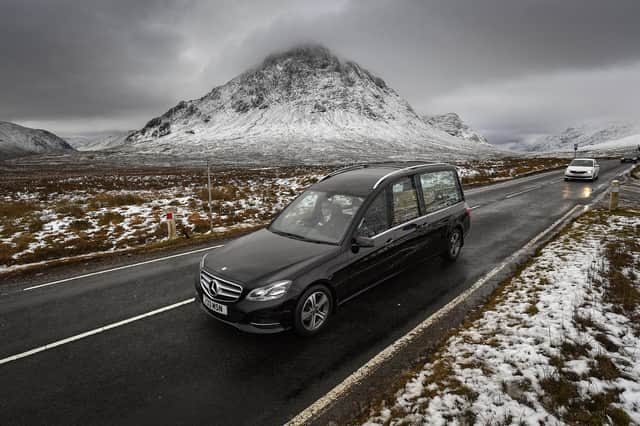Humanity's genocidal war against nature must stop – Scotsman comment


This was the message that Scottish mountaineer, filmmaker, writer and inventor Hamish MacInnes, whose funeral took place yesterday, wanted to get across in his critically acclaimed documentary series, Where Eagles Fly.
And it is fair to say the basic sentiment, that humans must not destroy the natural world, is widely shared among those whose sense of adventure takes them to the remote and wild places of this planet. They experience first-hand what the world can be like when not altered, almost beyond recognition, by humans: forests filled with the sound of birds, rather than a concrete jungle echoing to the sound of passing traffic.
Advertisement
Hide AdAdvertisement
Hide AdThe rest of us appear to be starting to realise the wisdom of people like MacInnes. At the height of lockdown, when the traffic stopped and the birds sang, the peaceful atmosphere was a revelation for some.
However, the sad fact remains that humanity is carrying out a genocidal slaughter of vast numbers of species, in some cases quite deliberate, in others accidental.
This may sound extreme, but listen to the Secretary-General of the United Nations, Antonio Guterres, speaking earlier this week. “Our planet is broken,” he said. “Humanity is waging war on nature. This is suicidal. Nature always strikes back, and it is already doing so with growing force and fury.”
Last year, a report by the Intergovernmental Science-Policy Platform on Biodiversity and Ecosystem Services (IPBES) concluded that around a million animal and plant species are threatened with extinction, “many within decades, more than ever before in human history”.
Sir Robert Watson, chair of the IPBES, warned: “The health of ecosystems on which we and all other species depend is deteriorating more rapidly than ever. We are eroding the very foundations of our economies, livelihoods, food security, health and quality of life worldwide.”
This has been called the Sixth Mass Extinction of life on Earth (the fifth put an end to the dinosaurs) and it is almost entirely our fault.
Humanity desperately needs to find better ways to live in harmony with the natural world or, one day, we will pay the ultimate price for our folly in believing that we are somehow not part of it.
A message from the Editor:
Thank you for reading this article. We're more reliant on your support than ever as the shift in consumer habits brought about by coronavirus impacts our advertisers.
If you haven't already, please consider supporting our trusted, fact-checked journalism by taking out a digital subscription.
Comments
Want to join the conversation? Please or to comment on this article.